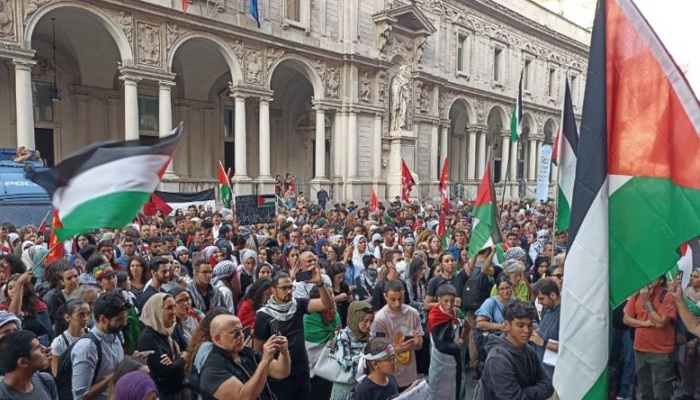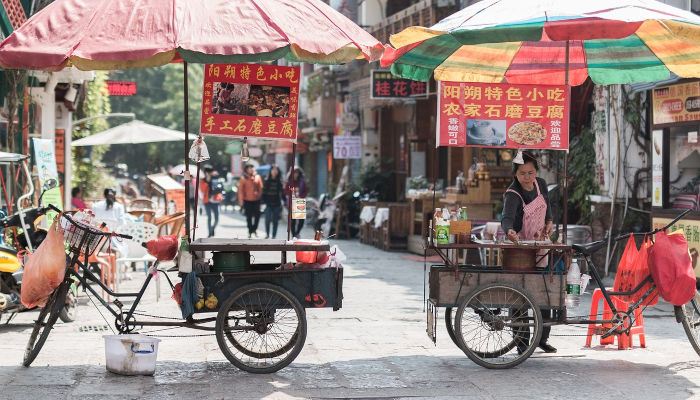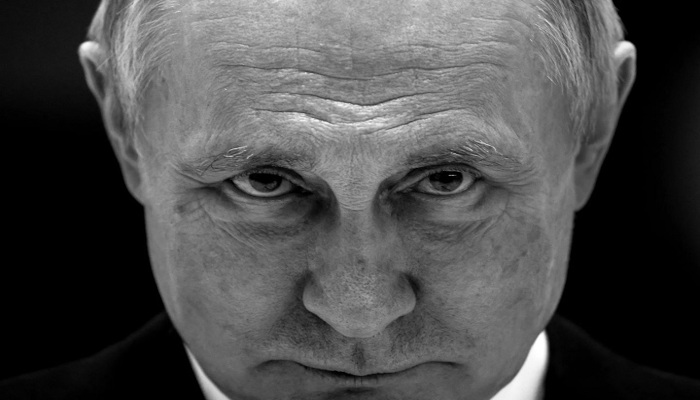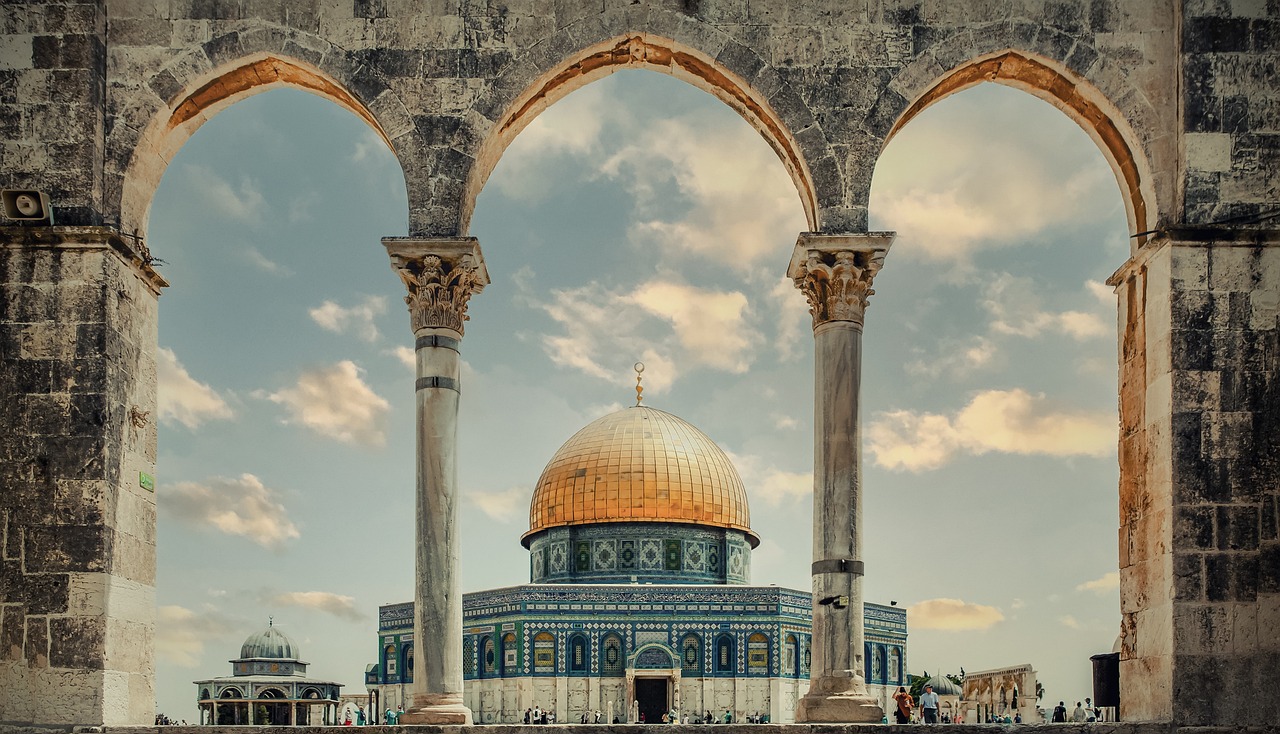
Western countries should stop focusing on ending migration. The real problem is being careless about migrants’ integration. It is a priority to prevent Gaza-like insurrections in the West.
The ongoing pro-Palestinian protests in Western countries are an important signal that something went very wrong with the relationship between some Muslim immigrants and their host countries.
Western governments need to be vigilant to avoid breeding a second “Gaza strip”-like situation in their own countries that, in time, could blow up in their faces.
In Israel, for many years, the government gave up on trying to solve systematically the problems with the Palestinians in Gaza and the West Bank. It let it fester, thinking that if it was tough to solve, it was not a problem after all, and it was enough to manage it as a law-and-order issue. When the international situation changed, so did the Palestinian issue, and it led to the October 7 racist terrorist attack.[1] Now, there are signs of a deep rethinking in Israel. The Palestinian problem needs a better solution.
According to Yair Golan, a former general in the Israeli Defense Forces until 2017, “First and foremost, we need to lessen civilian friction [with Palestinians]. The meaning of that is that we need to shape our future borders like we started to do during the implementation of the Gaza Disengagement Plan in 2005. It was good for Israel, lessening the civilian friction. By doing that, you provide less and less opportunities for terrorists.”[2]
Similar deep thinking is also necessary in Western countries about immigrants from Muslim countries who took to the streets in support of the Palestinian cause and are often oblivious of the Hamas racist slaughter.
Indeed, in Europe or America, Muslim immigrants are not secluded in walled ghettos; there is no old grievance about ownership of the ancestral land, like with Palestinians and Israelis, but there is a growing problem of integration.
There are evidently Muslim immigrants who, on the surface, show hatred and loathing against Israel. However, “Israel” is a mirror to reflect their gripes and dissatisfaction with the Western nations where they live after leaving their ancestral homes.
In their new home countries, they apparently feel like second-class citizens, marginalized, rejected, and unwelcome, although they work and contribute to society. There is a social, political, and cultural issue at stake here.
A wrong angle
The situation proves that many Westerners look at the immigration problem from the wrong end of the glass.
Indeed, immigration has to be controlled and channeled because Western societies can’t withstand the onslaught of unchecked and free borders.
Still, solid economic forces on all sides, from developing and developed countries, push for a flow of labor from the global South to the global North. The North needs a workforce that its declining demography and the fast-paced market cannot supply domestically. These workers can come from the South, where improving living conditions enable a few more adventurous, entrepreneurial people with family connections or funds to invest to take the leap of a migration voyage.
It is impossible to stop the flow, and it would cause a double social and economic collapse both in the South and the North. The jobs filled by these migrants are crucial for the normal functioning of the North; the hope of migration and the remittances help keep the South humming and running. So, there is a very tight bond there. It has to be managed, but it’s unthinkable to break it.
However, a bigger problem has been neglected, and it is one the West has been cavalier, or superficially liberal, about – that of cultural integration.
The massive pro-Hamas protests are organized by people who are already in Western countries but seemingly feel they are not culturally there or want to turn Western countries to Islamic rule. There are elements of social protest.
People who, 40 years ago, claimed to be socialists or communists now channel their remonstrations into the arms of pro-Hamas rallies. But it is not only that. There is a new difficulty in altering the old Western cultural melting pot for the integration of Muslim immigrants.
The changing nature of the melting pot is an old problem in America, where each wave of new migrants found the hostility of the old settlers. But it is a new issue in Europe. Here, some parties confuse the order of the equation. The real problem is the integration of the people who are residents and citizens of Europe, not stopping the newcomers.
Immigrants who come to their host countries must abide by the local laws and customs. These laws and customs are liberal, based on a specific cultural heritage and tradition.
Host countries, because of their liberal tradition, can allow different religions to coexist, but the same can’t happen with customs and laws. The immigrants, whatever their background, must abide by the traditional liberal value system that shapes the Western world where they moved.
The failure of some immigrants to abide by these laws should be firmly addressed. It is undoubtedly a law-and-order issue, but not only that. It is a profound cultural and social issue. That is, immigrants have to be culturally integrated into the West.
The problem has been ignored for years, but the recent October 7 terrorist attack is a warning to Western countries. Integration, according to traditional Western customs, must become a priority. They must be part of their host country, sharing their liberal values. They have to become a bridge to their country of origin and not the fifth column of an insurrection.
Again, the experience of Israel is essential. Some people claimed that the problems of Gaza were too tricky to solve, and thus, it was no longer a problem as long as it was contained. They were wrong. Similarly, people in Europe waving the anti-immigration flag but forgetting about the crucial integration sow the seeds of future explosive uprisings.
The Church and the teaching of the Pope, who has been reaching out to the Muslim world for many years now, is of essential importance to bridge a gap of understanding between radical Islam and the Western world. Much more can be done here. But, perhaps even more importantly, Western states and governments should learn to get their priorities right.
[1] See http://www.settimananews.it/informazione-internazionale/intelligence-and-culture-missing-for-china/ and http://www.settimananews.it/politica/netanyahu-fallen-paradigm/
[2] https://jstribune.com/the-jerusalem-strategic-tribune-talks-yair-golan/









